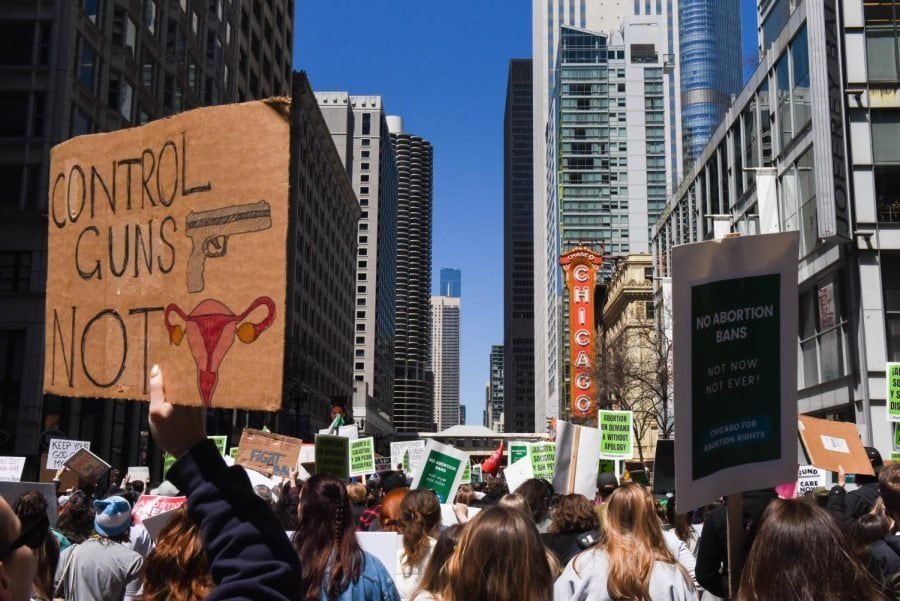Abortion activist groups speak to how Evanston and NU can support people seeking abortions
Alyce Brown/The Daily Northwestern
For Evanston residents seeking abortion care, their closests options are in Skokie or Rogers Park.
October 18, 2022
For Evanston residents and Northwestern students alike, local abortion care options are limited.
Evanston, a democratic stronghold, does not have an abortion clinic within city limits. The closest clinics are Carafem in Skokie or Planned Parenthood in Rogers Park. Some local abortion rights activist groups have said access and travel can be difficult for Evanston residents, arguing Evanston and even the University should allocate funds and provide more robust support to residents who need this reproductive healthcare.
Midwest Access Coalition is a practical abortion fund that helps provide travel, accommodation and solutions to other needs for people traveling to receive the procedure. Director of Strategic Partnerships Alison Dreith said the group seeks to help lift any financial burden for anyone seeking an abortion.
“Travel has always been a huge barrier to overcome for abortion seekers, but it has only gotten worse since the Supreme Court decisions,” Dreith said, “Not only have clinics closed but just states entirely have outright banned abortion. We’re seeing so much more travel to places like Illinois.”
Dreith said Evanston’s lack of abortion clinics primarily affects residents living in the area who don’t have the wealth accessibility to travel, who work shift jobs and who are college students.
Some Evanston residents visit Planned Parenthood Illinois in Rogers Park. Program Manager of Advocacy and Campaigns for PPIL Lake County and Northern Cook County Claire McNorton said all 17 Planned Parenthood locations in Illinois have increased the number of abortion appointments they provide due to an influx of in and out-of-state patients.
McNorton said Planned Parenthood also expanded its telehealth services, which can provide an abortion pill by mail to qualifying patients with an Illinois address after a telehealth appointment. That option is open to all Evanston residents.
“That has opened up access to a lot of folks who maybe wouldn’t have been able to travel into the city to a health center or who can’t take time off work or can’t get out of class,” McNorton said. “That telehealth service has really expanded the amount of patients that we are able to see the care that we’re about to provide.”
Dreith said municipalities can support residents seeking abortions by taking public stances and take it a step further by allocating municipal funds and money out of federal COVID-19 relief packages to help residents access abortion care.
City Council voted unanimously to affirm Evanston’s commitment to the fundamental right to reproductive healthcare in August. Council has also called on different departments, including Evanston Police Department, to explore policies they could implement to support residents.
While Illinois currently has some of the strongest abortion rights-affirming laws in the country, NU Women’s Center director Sarah Brown stressed the importance of respecting the right to choice at a university.
Brown said NU could consider providing abortion pill access to students through the University’s health services, an initiative recently enacted by the University of Illinois Chicago.
“I don’t want us to take for granted… we live in a blue bubble and the access we have is in no danger, I don’t think that’s true and I think that’s a dangerous idea,” Brown said. “I think we have to fight for not just better access but to keep the access that we have.”
Email: [email protected]
Twitter: @shannonmtyler
Related Stories:
— Demonstrators gather for rally and march to defend abortion access
— Local women-owned businesses raise almost $60,000 for Planned Parenthood IL
— Gender and Sexuality Studies Program talks past, present and future of abortion rights


